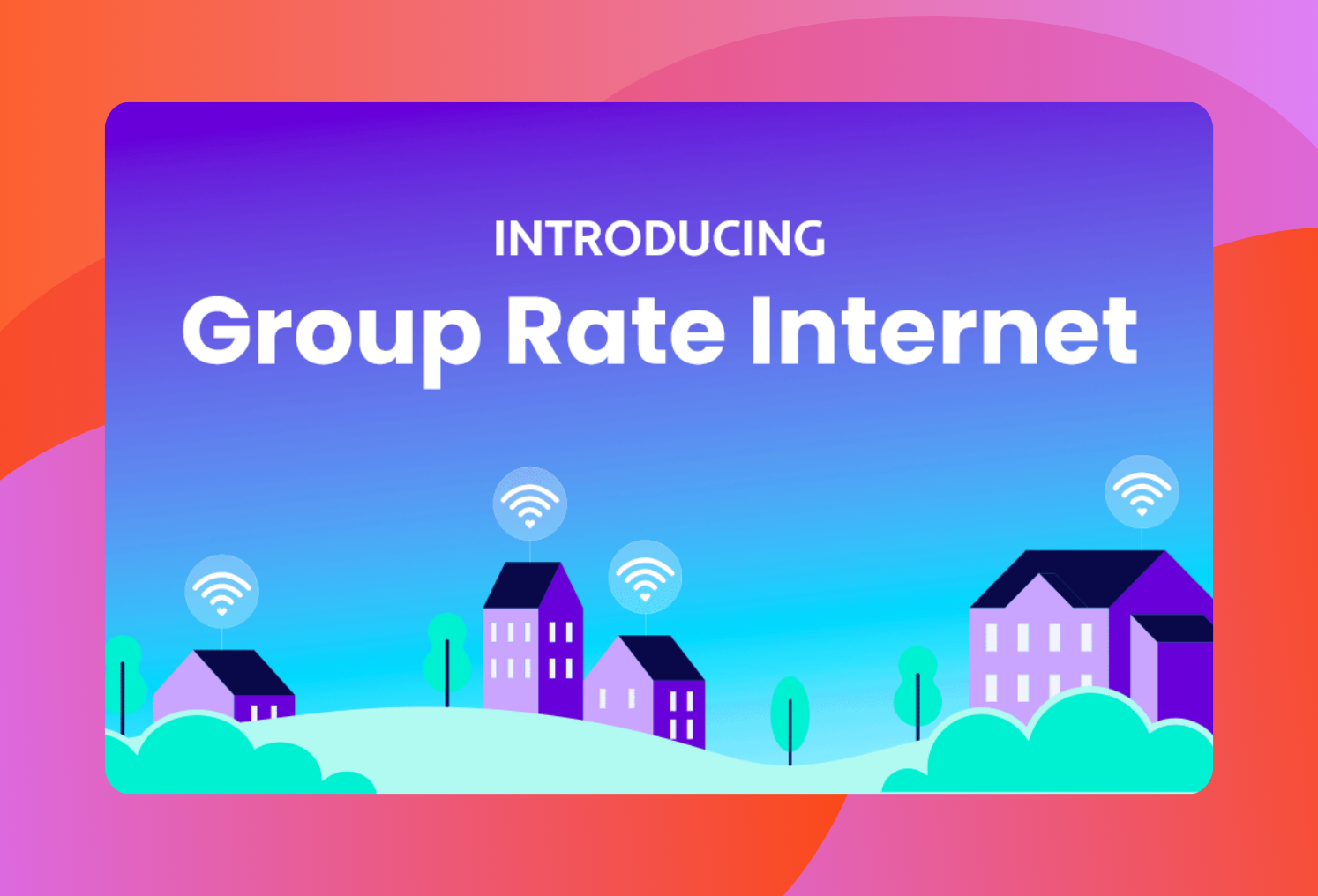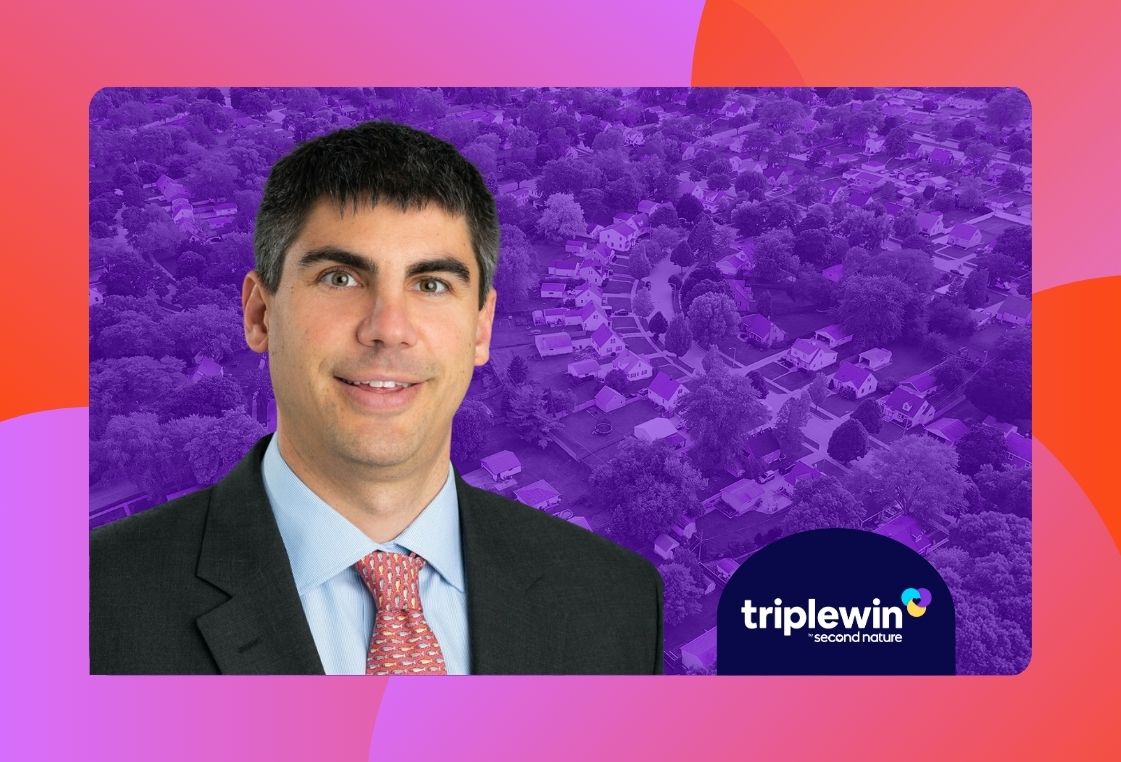Four Keys to Successfully Scaling A Property Management Company
Today we're looking at the best ways to successfully scale a property management company. And we're going to an industry expert with our questions: Patrick Freeze. Patrick Freeze was once a professional poker player. Now he is the CEO of Bay Property Management, a Baltimore-based firm that has scaled to nearly 6,000 doors and is one of the largest PMCs on the east coast. While his personal origin story is one of the most interesting in the PM industry, his company’s growth story and the tactics used to go from nothing to a heavily-scaled PMC are equally interesting. Through a marketing-focused approach that was complimented by intentional and detailed process optimization, Freeze achieved an impressive amount of growth at Bay, and he joined us to explain exactly how he got there. Four Keys to Successfully Scale Your PMC Here are Freeze's top strategies. Optimize Your Marketing for Efficient Growth From day one, Bay Property Management has invested in its organic marketing efforts to help attract new business. Freeze himself became an expert in SEO early on and it’s the primary focus of his robust marketing team today. “I started reading everything I could on online marketing, so SEO, pay per click, etc. Over that coming year, I became really skilled at doing all the marketing on my own,” says Freeze. “So if you were to type in property management companies, Baltimore property management companies, or any variation of those keywords, we could come up number one. And then we started getting phone calls 24/7.” Bay grew rapidly as a result of its ability to generate web traffic and organic leads through SEO, and Freeze doubled the size of the business on a yearly basis for several years after the initial launch, eventually expanding into four different markets. Freeze credits his and his team’s investment in low-funnel digital marketing tactics as the catalyst for his rapid business growth. The CEO estimates he gets between 120 and 140 new single-family leads a week, with almost all of them coming from online sources. “We have 10 people in our marketing department that solely focus on that. Google is actually going through a big algorithm update right now, and you have to be on that. If you’re not on top of that, you’re not going to rank well in search. We spend a lot of time on that. Someone could probably argue the other side and say you should be more diversified, but at least that’s worked for us.” Process Improvement Never Takes A Back Seat One of the biggest pitfalls as a business grows is its process development and refinement. Scale requires processes, and enacting and optimizing these can often be a much bigger challenge than actually growing the client list. A rapidly growing PMC has already optimized its process for finding new business. Defining the systems your company will depend on to be efficient is a new undertaking, something Freeze learned quickly as Bay grew to nearly 200 employees. “When you’re managing 500 units, you know everyone at the company very well, and you can get away with not having systems, policies, procedures. When you have 190 people, you really have to have your systems down,” says the CEO. Freeze notes that the challenges that come with a large company are not universal, and what you have to be prepared for at 50 employees is different from 150. It pays to have continuous improvement and always be optimizing. Process management is never something that’s done. “So I think probably scaling from let's call it, you know, five employees to 15 to 50 To 100. You have to keep iterating. You have to continuously make improvements on what you're doing. So what worked for, let's call it 200 doors is not going to work for 1,000. So a good example, I guess when we started out. We had one person handling maintenance, we had one person handling accounting, we had one person as the property manager, right? And I would go out and get new business. Well, as the company continued to grow then we had two people on maintenance. And then we had two property managers. And as we were growing, we realize, wait a second, when a work order comes in, whose work order is that?” Early on in the company’s growth, Freeze sought to define the exact responsibilities of all positions within the company in order to minimize overlap. Overlap in roles leads to inefficiencies that can be avoided with clear guidelines as to exactly what role is responsible for what upcoming tasks. “We have a handbook for our property managers that’s probably 80 pages. We have a procedural guide for every single position,” says Freeze. “I don’t think anyone whom I’ve talked to that has scale has not had very, very defined policies, procedures, handbooks, because if you don’t, it’s going to be a total mess.” Structure has helped create more traceable outcomes, which results in processes that are “more easily optimized and improved as the company continues to grow. “We made a change when we had about 1000 or 1200 units from having maintenance coordinators and property managers to just having the property managers handle everything. It was a big switch for the company, but I think it was for the better because we know exactly when there’s a mistake that’s made. We can trace that and see exactly who was responsible for the problem instead of having four hands in the pie.” Quality Employees Are The Backbone of Growth “I don’t think there is anything more important than having good quality employees,” says Freeze. “You can get all the new business you want but if you don’t have good employees managing the new property, you’re going to lose it as quickly as you gained it.” Bay did not grow to almost 200 employees without a developed process for finding good quality workers. While the hiring process has become much more role-specific now, Freeze credits a unique interview design that’s much more action-focused than response-focused as what has helped him pick the most suited people for property management. “I had a list of 30 to 40 questions that had nothing to do with property management. I would ask questions like ‘who is the vice president?’ ‘What is 46 times 24?’ I used to have this brick wall in my office and I would ask how many bricks are on the wall. I would ask them to name something that’s complicated but you know really, really well, and take five minutes and explain it to me. And I would just keep going on and on for probably 30 minutes with these questions.” Freeze never particularly cared if the candidates got the answers correct. He was much more interested in their process for getting to the answers and how they handled the abnormal interview. “In property management, you’re constantly dealing with problems. You’re basically problem-solving when you’re a property manager, and if you can’t deal with complicated questions, you’re probably not going to be able to deal with complicated situations. So I would just start blasting off for 30 minutes all these random questions, and some people did great with it and we would hire them. We probably had 25% of all people who wouldn’t even finish the interview.” Resiliency is a key trait for a property manager, and Bay’s interview process succeeded in testing for one of the harder traits to ID in an interview setting. Freeze’s process also includes a timed writing test designed to see if candidates can write clearly and quickly when applying for a company that’s very email heavy. The process is designed to test ability more so than experience, and it’s helped get the right people in place from the beginning, allowing Bay to offer a better property management service that is more marketable. Compliance Is Key Compliance is hard enough in the heavily regulated world of property management, but one of the biggest challenges as you expand into other markets is managing the different laws and ordinances in each individual market. Freeze believes that compliance is “far and away” the biggest challenge of scale. “All of our leasing agents have to know different things in different jurisdictions that we’re in, because the requirements are different,” says Freeze. “We have attorneys review our stuff every single year, all of our lease documents, addendums, etc. Even with all that said, there is so much legislation that is passed every quarter that it can be tough to stay up on it.” Managers at Bay’s regional offices are required to be diligent in remaining current with the nuances in local leasing laws and ordinances, which can change monthly. “They really are changing that much, as crazy as that sounds. And then when COVID happened, it was a complete and utter nightmare. They were changing weekly, and the odds of getting hit with a big class-action lawsuit go up, and you can be sued for something that you don’t even know you’re doing wrong. So always make sure you are totally buttoned up and spending extra money on compliance. I can’t say that enough. You can’t spend too much on that.” Advantages of Scaling a Property Management Business With these tools for scaling a PMC, you can increase the size and scope of your business in order to achieve higher levels of efficiency, profitability, and growth. Let’s look at what benefits you stand to gain from scaling your business. Business growth Scaling a business can help to grow your business by expanding the customer base, increasing sales volume, and improving operational efficiency. Improved profitability As a business grows, it can benefit from economies of scale, which can help to reduce costs and improve profitability. Competitive advantage Scaling a business can help to create a competitive advantage by allowing it to offer a wider range of products or services, enter new markets, and achieve greater brand recognition. Improved access to capital A larger and more successful business is often able to attract more investment and secure better financing terms, which can help to fuel further growth. In the case of property management, it can also drawn clients. Attracting and retaining top talent Scaling a business can help to create new opportunities for employees, increase job security, and improve overall job satisfaction, which can help to attract and retain top talent. Increased innovation As a business grows, it can invest more resources into research and development, which can help to drive innovation and create new products or services. Tools You Need to Scale Your Property Management Business The property management industry is an enormously tech-savvy group of people. In our network of property management companies, we’ve seen quick adoption of new tools and tech like AI, cloud-based systems, etc. Of course, the property management tools you choose will depend on the specific needs and goals of your PMC. Second Nature’s RBP aims to provide tools that are customizable across multiple property management levels, needs, and niches. With fully managed and integrated services that add value for residents and investors you can much more easily see the benefits of scale. Here are some other tools and property management software we’ve seen most highly rated in our industry. Slack: A cloud-based platform that makes communicating with your team easy. You can get immediate responses from team members, and even vendors or clients you add to your channels. LeadSimple: Sales CRM and process automation RentCheck: Automating property inspections Process Street: No-code, simple process and workflow management Airtable: a low-code platform to build collaborative apps to visualize data, processes, etc. Zapier: A tool that allow syou to integrate all your applications and set up automated workflows between them. These are just a few of the many property management tools available. It's important to evaluate the specific needs and goals of your business, and choose a tool that best fits those requirements. How Second Nature Helps With Scaling Second Nature was built on the idea that we could help make property management easier for everyone involved – residents, investors, and especially property managers. To that end, we’ve built fully managed services that generate greater value for your PMC by delivering better resident experiences. Our team takes care of the details for you so that your team can focus on growth, reputation, and quality. Learn more about Second Nature’s industry-leading resident benefits package and how it can help you scale with greater ease.
 March 21, 2023
March 21, 2023
Read more

March 19, 2025



